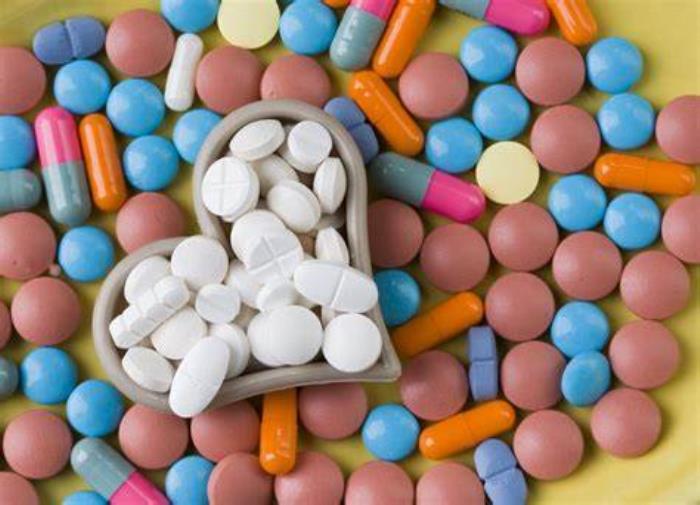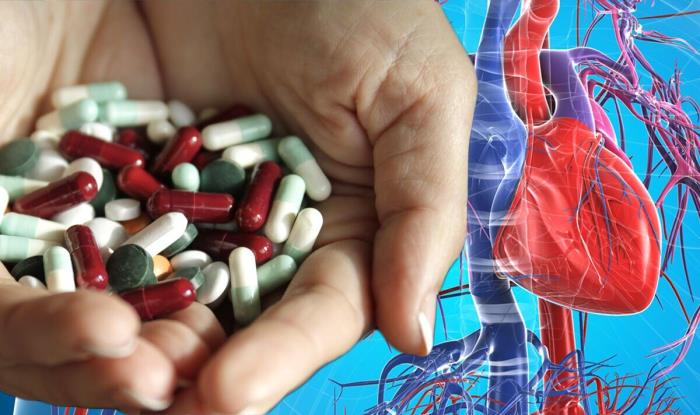After pacemaker implantation, managing medications is a crucial aspect of ensuring the device functions properly and the patient’s heart rhythm is controlled effectively. While the pacemaker regulates the heart’s rhythm by sending electrical impulses, medications complement this treatment by addressing other aspects of heart function, such as preventing blood clots, controlling heart rate, and managing pain.
Medications for Heart Rhythm Control After Pacemaker Implantation
One of the key roles of medications after pacemaker surgery is to support heart rhythm control. While the pacemaker can effectively regulate the heartbeat, medications may be prescribed to further stabilize heart rate and rhythm. For instance, beta-blockers and antiarrhythmic medications can help prevent irregular heartbeats or slow heart rates that the pacemaker might not address entirely. These medications work in tandem with the pacemaker to optimize heart function and prevent episodes of arrhythmia.
Anticoagulants: Preventing Blood Clots in Pacemaker Patients
In some cases, pacemaker patients may be at an increased risk of developing blood clots, especially if they have atrial fibrillation or other heart conditions. Anticoagulants, or blood thinners, are often prescribed to prevent the formation of blood clots, which can lead to serious complications like stroke or pulmonary embolism. The decision to use anticoagulants depends on the patient's overall risk profile, including their history of clotting disorders or arrhythmias.
Beta-Blockers: Managing Heart Rate and Blood Pressure
Beta-blockers are commonly prescribed to pacemaker patients to help manage heart rate and blood pressure. These medications block the effects of adrenaline on the heart, slowing the heart rate and reducing the force of heartbeats. For pacemaker patients, beta-blockers can enhance the effectiveness of the device by preventing excessively high heart rates or arrhythmias that the pacemaker may not be able to control alone. They are especially useful for individuals with high blood pressure or those who experience episodes of tachycardia (abnormally fast heart rate).

Antiarrhythmic Medications: Keeping Arrhythmias in Check
Antiarrhythmic medications are another critical component of post-pacemaker care. These drugs help manage irregular heart rhythms, particularly in patients with atrial fibrillation or other arrhythmias. Antiarrhythmic medications work by altering the electrical signals in the heart to restore normal rhythm and prevent episodes of arrhythmia. Depending on the type of arrhythmia, different classes of antiarrhythmic medications may be prescribed, including sodium channel blockers, potassium channel blockers, and calcium channel blockers.
Pain Management Medications After Pacemaker Surgery
After pacemaker implantation, patients may experience some discomfort or pain, particularly around the incision site or where the pacemaker is placed. Pain management medications, such as nonsteroidal anti-inflammatory drugs (NSAIDs) or opioids, may be prescribed in the immediate post-operative period to control pain and aid in recovery. It is important to follow the prescribed dosage and avoid overusing pain medications to minimize the risk of side effects, such as drowsiness, nausea, or constipation.
Blood Thinners: When Are They Necessary for Pacemaker Patients?
In certain cases, blood thinners may be necessary for pacemaker patients, particularly those with conditions like atrial fibrillation, which increases the risk of blood clot formation. Blood thinners work by reducing the blood's ability to clot, which helps prevent strokes and other complications related to clotting. However, they also come with a risk of bleeding, so the decision to prescribe them must be carefully considered based on the patient's individual health status. Regular blood tests are typically required to ensure that the blood thinner is working effectively without causing excessive bleeding.
The Role of Diuretics in Managing Fluid Retention
Diuretics are often prescribed to manage fluid retention in pacemaker patients, especially those with heart failure or other cardiac conditions. These medications help remove excess fluid from the body by increasing urination. By reducing fluid buildup, diuretics help ease the heart's workload and alleviate symptoms like swelling in the legs, ankles, and abdomen, improving overall comfort and preventing complications related to fluid overload.
Medications to Support Overall Heart Health Post-Surgery
After pacemaker implantation, patients may need medications to support overall heart health, including blood pressure medications (ACE inhibitors, beta-blockers), medications to manage heart rhythm (antiarrhythmic drugs), and cholesterol-lowering medications (statins). These drugs help maintain heart function, prevent further complications, and enhance the effectiveness of the pacemaker in regulating heart rhythms.

Adjusting Medications in Pacemaker Patients with Comorbid Conditions
Pacemaker patients often have other medical conditions such as diabetes, hypertension, or coronary artery disease. Managing these conditions effectively may require adjusting medications. For example, if a pacemaker patient develops high blood pressure, blood pressure medications may be adjusted or added. Close monitoring by healthcare providers ensures that all medications work together harmoniously without causing adverse effects.
Interaction of Medications with Pacemaker Function
Certain medications can affect pacemaker function, particularly those that alter heart rate or electrical conduction. For instance, antiarrhythmic medications and some calcium channel blockers can influence the pacing of the heart, potentially interfering with the pacemaker’s ability to regulate heart rhythm effectively. It’s important for pacemaker patients to inform their healthcare providers about all medications they are taking to avoid interactions that may affect device performance.
The Role of Statins in Managing Cholesterol Levels in Pacemaker Patients
Statins are commonly prescribed to pacemaker patients who have high cholesterol levels. These medications help lower LDL ("bad" cholesterol) and reduce the risk of cardiovascular events such as heart attack or stroke, which could affect the heart’s health. Statins can help stabilize plaque in the arteries and improve long-term heart function, complementing the pacemaker’s role in regulating heart rhythm.
Medications for Infection Prevention After Pacemaker Implantation
Infection prevention is critical after pacemaker implantation. Antibiotics are often prescribed during and after surgery to reduce the risk of infection at the incision site or in the heart. Patients may also be given topical antibiotics or ointments to apply to the surgical site. Strict hygiene and following postoperative instructions help prevent infection.
Regular Monitoring: How Medications Are Adjusted Over Time
Medications for pacemaker patients are not one-size-fits-all. Over time, as the patient's condition evolves or they experience side effects, adjustments to their medication regimen may be necessary. Regular follow-up appointments are crucial for assessing the effectiveness of prescribed medications, monitoring for side effects, and making any necessary changes to improve overall health and device function.
Lifestyle Modifications and Their Impact on Medication Needs
Lifestyle changes such as diet, exercise, and weight management can have a significant impact on the medications needed by pacemaker patients. For example, a heart-healthy diet can lower blood pressure and cholesterol levels, potentially reducing the need for certain medications. Regular physical activity can improve heart function and may reduce the dependence on drugs like blood pressure medications or diuretics.
Managing Pain or Discomfort Related to Pacemaker Implanted Site
Pain or discomfort at the pacemaker implantation site can occur during recovery. Nonsteroidal anti-inflammatory drugs (NSAIDs) or acetaminophen are commonly prescribed to manage this pain. If discomfort persists, the pacemaker site should be evaluated to rule out infection or other complications. Patients should avoid heavy lifting or activities that strain the implantation site to minimize discomfort.
The Importance of Regular Follow-Up Appointments for Medication Adjustments
Regular follow-up visits are crucial for managing medications after pacemaker implantation. These visits allow healthcare providers to assess the patient’s response to medications, check for potential interactions with the pacemaker, and adjust dosages as needed. Follow-ups also provide an opportunity to monitor for any side effects or complications and address them promptly.
Potential Side Effects of Medications in Pacemaker Patients
While medications are essential for managing health after pacemaker implantation, they can also have side effects. Common side effects include dizziness, fatigue, gastrointestinal issues, and changes in heart rhythm. Patients should discuss any adverse effects with their healthcare provider to determine whether adjustments to the medication regimen are needed.
Educating Patients: Understanding Medication Regimens
Patient education is a key component of pacemaker care. Patients should understand the purpose of each medication, how to take them properly, and potential side effects. It is also important for patients to be informed about when to contact their healthcare provider if they experience symptoms like dizziness, swelling, or chest pain, which could indicate medication issues or pacemaker-related complications.
Risks and Complications of Pacemaker Surgery
Explore the risks and complications associated with pacemaker surgery. This section discusses the potential challenges during and after surgery, helping patients understand what to expect and how to mitigate risks.
Causes of Heart Rhythm Disorders That May Require a Pacemaker
Understand the causes of heart rhythm disorders that may necessitate pacemaker implantation. This section explores the conditions and diseases that lead to arrhythmias, helping patients understand when a pacemaker might be needed.
Conclusion: Medication Management as a Key Component of Pacemaker Care
Medication management is a vital part of pacemaker care, as it ensures the device functions optimally while addressing underlying health conditions. Regular monitoring and follow-up appointments, along with patient education, play an important role in maintaining overall heart health and device effectiveness. By adjusting medications as necessary and managing side effects, patients can enjoy improved health outcomes and quality of life after pacemaker implantation.
Best Pacemaker Implantation Surgery in India
The Best Pacemaker Implantation Surgery in India offers a life-saving solution for patients with irregular heartbeats, helping to regulate heart rhythm and improve overall health.
Best Pacemaker Implantation Hospitals in India
The Best Pacemaker Implantation Hospitals in India are equipped with advanced cardiology facilities and skilled surgeons, ensuring top-notch care from diagnosis to post-surgery follow-up.
Best Pacemaker Implantation Surgeons in India
The Best Pacemaker Implantation Surgeons in India are experienced in cardiac device implantation, delivering personalized care to help patients manage heart rhythm issues effectively.
FAQ
What medications are prescribed after pacemaker surgery?
Medications may include anticoagulants, beta-blockers, antiarrhythmic drugs, diuretics, and antibiotics to prevent infection and manage heart function.
How do anticoagulants help pacemaker patients?
Anticoagulants help prevent blood clots, reducing the risk of stroke or other complications associated with irregular heart rhythms.
Are there medications that interfere with pacemaker function?
Yes, certain medications, such as antiarrhythmics or calcium channel blockers, may interfere with pacemaker function. It's important to inform your doctor of all medications you are taking.
Can medications for heart arrhythmias be used in pacemaker patients?
Yes, medications for heart arrhythmias, such as antiarrhythmics, can be used in pacemaker patients but must be carefully monitored to avoid interfering with the pacemaker’s function.
How often should pacemaker patients review their medications with their doctor?
Pacemaker patients should review their medications with their doctor regularly, typically during follow-up appointments every 3 to 6 months, or sooner if new symptoms or side effects arise.
Explore the Best Heart Care Resources in India
Find some of the top cardiologist, surgeons and the best heart hospitals in India
Best Heart Hospitals in India
Choosing the right hospital is crucial for successful heart treatments. If you want to explore trusted options, check the list of Best Heart Hospitals in India offering world-class facilities, advanced cardiac care units, and experienced teams for both simple and complex procedures.
Best Cardiologists in India
Finding the right cardiologist can make a huge difference in early diagnosis and long-term heart health. If you are looking for the Best Cardiologists in India, see this curated list of experts who specialize in preventive care, interventional cardiology, and complex heart disease management. Check the full list Best Cardiologists in India.
Best Cardiac Surgeons in India
If you are planning for heart surgery and need top-level expertise, we recommend exploring the Best Cardiac Surgeons in India. These surgeons have a proven record in performing bypass surgeries, valve replacements, and minimally invasive heart operations with excellent outcomes.